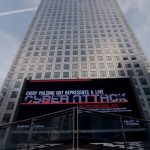US pressured North Korea by overwhelming hackers with data traffic
The US is no stranger to hacking North Korea, but it’s usually in a bid to directly thwart the country’s military ambitions. Now, however, those attacks are being used as a diplomatic strategy. The Washington Post has learned that President Trump ordered a broad pressure campaign against North Korea that led to the US conducting a denial of service attack against North Korea’s spying office, the Reconnaissance General Bureau. The move flooded the RGB’s servers with traffic that effectively strangled their internet access, including the Bureau 121 group responsible for the North’s hacking campaigns. And while it clearly didn’t change Kim Jong Un’s mind, it does appear to have had a practical effect.
Reportedly, the initiative was designed to be temporary and only lasted for half a year — Trump signed the order in March, and it ended on September 30th. It wasn’t destructive, either. According to the Post‘s sources, however, North Korean hackers were complaining about the ability to do their jobs during that period.
North Korea certainly isn’t going to get much sympathy. With that said, it raises questions about the use of cyberattacks as a pressure tactic. It no doubt sends the message that the US can cripple a hostile country’s digital warfare capabilities if it wants, but there is the concern that it could escalate an already tense situation. After all, North Korea is the sort of country that claims you can declare war with a tweet — while that’s hyperbolic, it might interpret a denial of service attack as an act of aggression that merits revenge.
The US is no stranger to hacking North Korea, but it’s usually in a bid to directly thwart the country’s military ambitions. Now, however, those attacks are being used as a diplomatic strategy. The Washington Post has learned that President Trump o… Engadget RSS Feed
(35)















